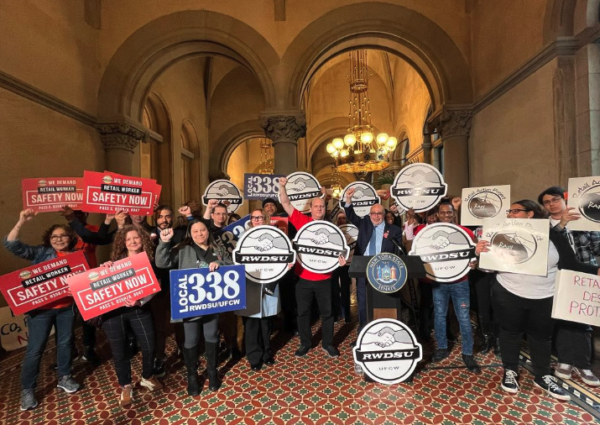LAS CRUCES, New Mexico – Supreme Court Justice Kennedy’s retirement announcement at the end of supreme June caused a whirlwind of news coverage regarding the future of Roe vs Wade, and rightly so. A Supreme Court vacancy under the current administration poses a real threat to issues that speak to NM values such as reproductive health, the environment, and immigration.
supreme June caused a whirlwind of news coverage regarding the future of Roe vs Wade, and rightly so. A Supreme Court vacancy under the current administration poses a real threat to issues that speak to NM values such as reproductive health, the environment, and immigration.
Lost in the bustle was a decision that immediately impacts women’s, and particularly women of colors’, lives.
On Kennedy’s last day of his final session, the court ruled on Janus vs AFSCME- agreeing that unions can no longer collect agency fees from non-members. As news outlets have reported, the base union membership and the ability of labor organizations to collectively bargain for the betterment of workers has been compromised.
You would be hard-pressed to find a family in the borderlands that doesn’t have a member or loved one who is part of a union. Unions have advocated for employment rights that reach far beyond their membership benefiting dues paying, and non-dues paying employees alike. The court’s ruling on Janus vs AFSCME is a death knell for unions across the country. One that impacts women, and women of color in particular.
The American Federation of Teachers (AFT) has been part of my family’s life-cycles: fighting for health coverage that covered the births and subsequent healthcare of myself and my siblings, the retirement benefits my father received after more than two decades with the El Paso Independent School District, and life insurance that helped my mom keep her home after the death of my step-dad last year.
The Economic Policy Institute reports that women make up 46.3 percent of union workers and that people of color makeup 35.8 percent. While pay equity is the most well-known union benefit, unions have also been a voice on issues specific to discrimination against women. In 1977, the United Auto Workers adopted a resolution declaring that women’s issues are UAW issues inclusive of, “affirmative action, childcare, and pregnancy relating to maternity benefits.”
Unions helped support the passage of the Pregnancy Discrimination Act, which prohibited employer discrimination on the basis of pregnancy. As the New York Times recently reported about ongoing pregnancy discrimination, for every child a woman has there is a 4 percent dropoff of her hourly wage.
Despite the fact that racism and sexism are not New American values, they do persist in our state severely impacting women of color and Indigenous populations. Unions have historically been an important avenue for redress.
With the Janus decision, the responsibility shifts to public officials at the local and statewide level to work toward a workplace free of discrimination for all New Mexicans with a strong foundation of equality. Public officials should also be vigilant of so-called “right to work” initiatives that try to undermine the ability of workers to collectively bargain.
There’s no doubt that court’s decision will leave a long-lasting impact on workers across the country. Protections for the many will suffer leaving room for only the advancement of a privileged few. With Justice Kennedy’s final decision and subsequent retirement, a key swing vote for employee rights retired with him.
Kat Sánchez is a long-time Las Cruces resident and communications fellow with Young Women United, an advocacy organization by and for women and people of color in New Mexico.



